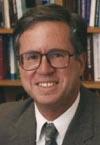Methodology in Science and ReligionBefore
reflecting theologically on scientific cosmology, I first want to discuss the
question of method - namely how I intend to relate science and theology. The idea of an epistemic hierarchy can be summarized here, but the methodological analogy will require further discussion below. In essence, the idea is that physics, for example, places constraints on biology: no biological theory should contradict physics, and so on up through the other sciences and humanities. On the other hand, the processes, properties, and laws of biology cannot be reduced without remainder to those of physics, and again on up through the other sciences and humanities. Though scholars differ on the precise ordering the disciplines, and the role that cross-disciplinary fields like genetics plays in the scheme, the idea of an epistemic ordering like this is crucial both to warding off the philosophical claims of reductionism and a ‘dualistic’ (or even more foliated) ontology of ‘levels’. To
make my case, particularly in regards to the analogy between scientific and
theological method, I am drawing directly on the pioneering writings of Ian
Barbour
Contributed by: Dr. Robert Russell |





